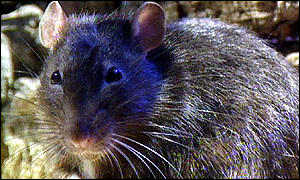
Stem cells repair stroke damage
URL: http://news.bbc.co.uk/hi/english/health/newsid_1174000/1174232.stm
Date accessed: 9 April 2001
Saturday, 17 February, 2001, 00:29 GMT
The finding adds weight to the theory that one day the cells may be able to help repair the damage left by strokes in humans.
Stem cells are the body's master cells, immature cells which can grow into many different types of mature cell and perform different functions.
The ultimate goal is to take an adult's own cells, expand them in
tissue culture in the laboratory, and transplant them back into the
individual's brain
|
|
Professor Daniel Rosenbaum, Albert Einstein College
|
During a stroke, when the blood supply is cut off from areas of brain tissues, many cells are lost, often robbing the patient of the ability to control movement properly, or even talk.
Brain cells do not quickly grow back when they are damaged, although the brain finds other ways of doing the same job and may make a partial recovery.
The team at the Albert Einstein College of Medicine in New York took rat stem cells from the cortex and injected them into the brains of both normal adult rats and those damaged by stroke.
Brain neurons
The cells were marked with a chemical which glows under the microscope, allowing their progress to be tracked.
Within a week, the cells were growing in both healthy and damaged brains and within three to six weeks, all had become fully mature brain neurons, making connections with other brain cells.
However, the experiment did point out some hurdles to the use of stem cells in stroke patients.
When implanted into areas heavily damaged by stroke, the cells were reluctant to grow, perhaps because the area was clogged with scar tissue and fluid filled cavities.
They did, however, grow well in areas not so severely damaged.
Professor Daniel Rosenbaum, who headed the study, said: "We were not sure the transplanted cells would even survive.
"The ultimate goal is to take an adult's own cells, expand them in tissue culture in the laboratory, and transplant them back into the individual's brain in a way that would lead to functional recovery."
Category: 31. Stem Cells